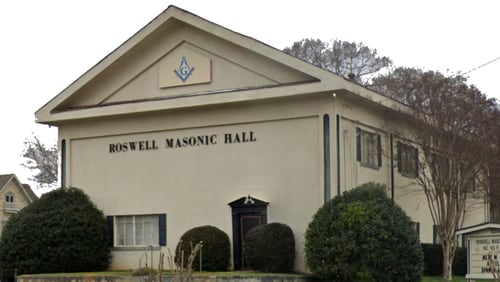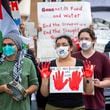Tuesday, March 27, marks Muslim Women's Day — a day for Muslim women to share their stories and for others to celebrate them during Women's History Month.
» RELATED: Muslims in America, by the numbers
Created by MuslimGirl.com last year with the help of dozens of media groups and websites, the day is an opportunity to "hear from a community that's often talked about but rarely given the chance to speak."
This year’s theme, according to Women’s March, is “Muslim Women Talk Back to Violence.”
According to the Pew Research Center, half of Muslim women reported in 2017 that they have experienced at least one type of discriminatory treatment.
"The number of assaults against Muslims in the United States rose significantly between 2015 and 2016, easily surpassing the modern peak reached in 2001, the year of the September 11 terrorist attacks," a Pew Research Center analysis of new hate crimes statistics from the FBI found.
» RELATED: Community Voices: Muslim women show more similarities than differences
In honor of Muslim Women’s Day, we rounded up some of our favorite inspirational quotes from iconic Muslim women around the world.
All day long, outlets such as MTV, Teen Vogue, Refinery29, Twitter and several more are highlighting Muslim women from diverse backgrounds in different lines of work.
» RELATED: Some new guidelines for foreign-born Muslims in Georgia
Social media users have also used their platforms to celebrate with the hashtag #MuslimWomensDay.
» RELATED: More than 500 Ismaili Muslims donate 80,000 Thanksgiving meals to Atlantans in need
But the movement also invited some criticism.
The backlash is similar to past criticism after companies such as Nike, Macy’s and others announced products aimed to promote diversity targeted at Muslim women.
» RELATED: Mattel announces Ibtihaj Muhammad doll, the first Barbie to wear a hijab
When Nike unveiled its Pro Hijab last year, some criticized the company for supporting the "oppression of women," prompting tweets of dissent with the hashtag #BoycottNike.
And just last month, Macy's revealed a Muslim clothing line featuring hijabs, which some said "glamourized a sign of oppression."
Following Nike's release of the Nike Pro Hijab for Muslim female athletes, weight lifter Amna Al Haddad applauded the company for its new product, which was developed with the help of hijab-wearing athletes.
People also shared a video by Hanna Yusuf of The Guardian, in which the Muslim feminist addressed critics of the hijab and said that wearing hers is a feminist statement.
“In a world where a woman’s value is often reduced to her sexual allure, what could be more empowering than rejecting that notion?” she said.
» RELATED: Some Muslim women afraid to wear the hijab since Trump's election
But, Yusuf said, her concern with the hijab being unfairly portrayed as oppression is not a denial of the fact that some women are forced to wear it in some parts of the world.
In Iran, for example, the so-called Girls of Revolution Street protests sparked a robust debate about women’s rights, and specifically, the hijab, which is compulsory in the country.
"The message is very clear and very specific—that women want to be able to choose if they wear hijab or not," Nasrin Sotoudeh, a human-rights lawyer in Tehran, told the New Yorker. "This is a civil-disobedience movement. Women know what the laws of the land say about hijab, and, based on that, they chose to protest."
About the Author






